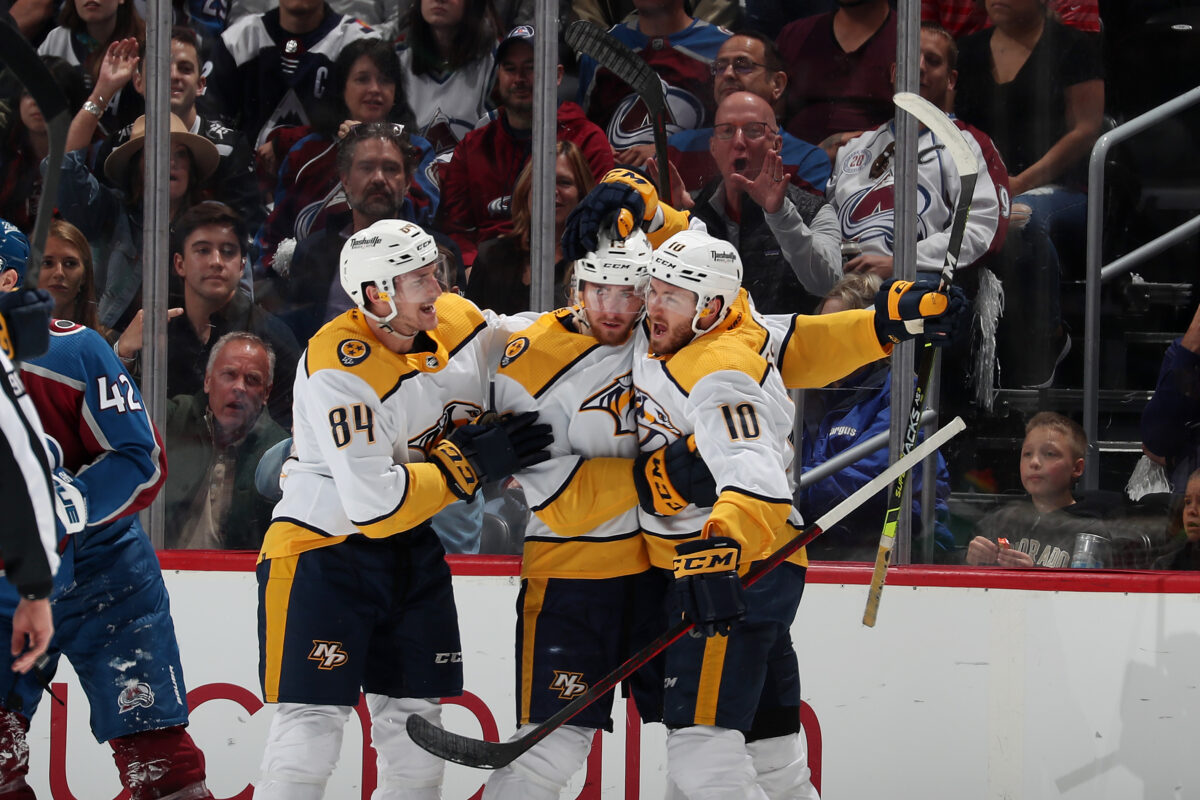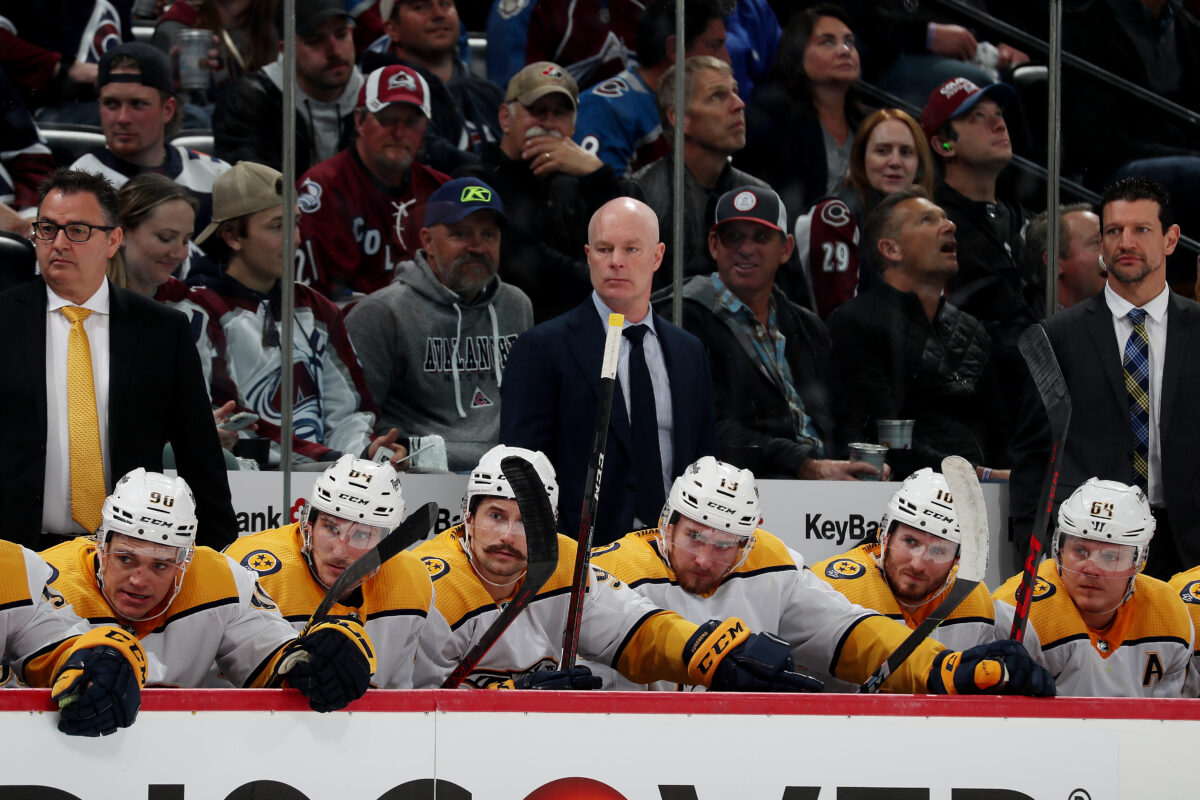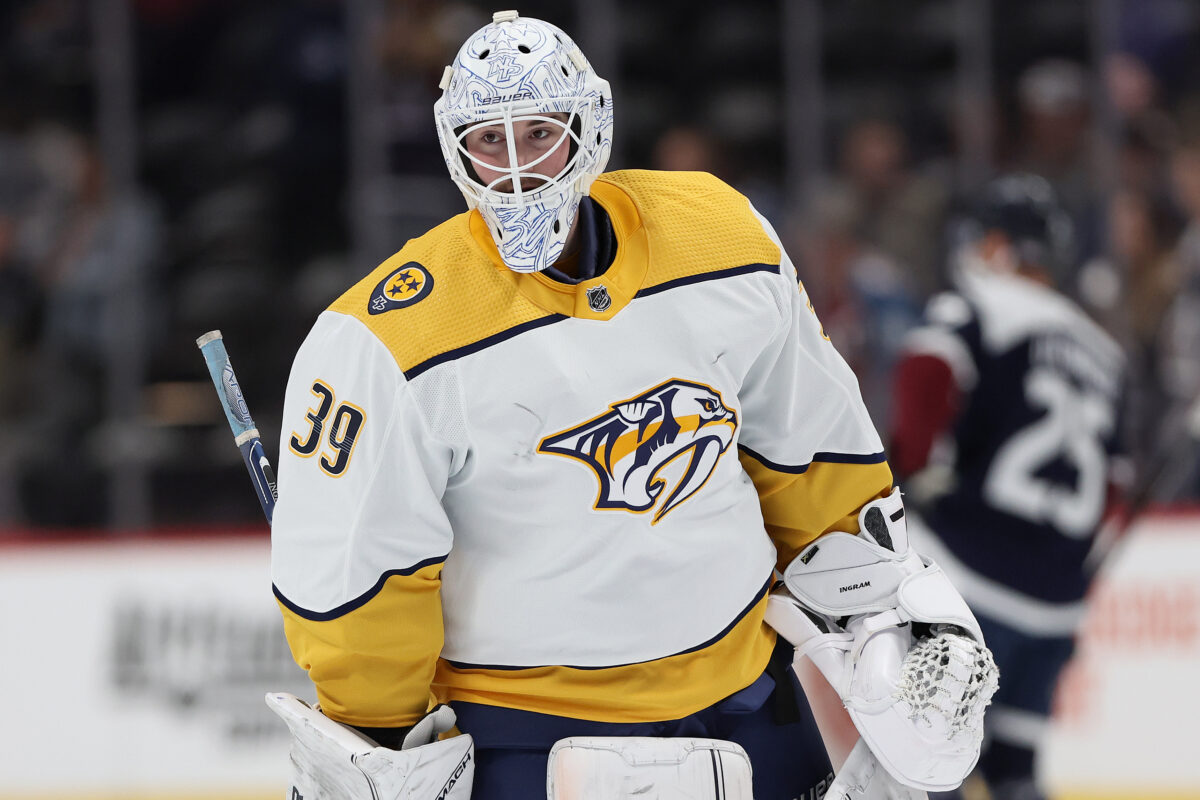The Nashville Predators demonstrated a better overall effort in the first period of Game 2, but the Colorado Avalanche’s depth and skill took over the game. The game was close on the scoreboard, but the shots heavily favored head coach Jared Bednar’s club. With the game at 1-1 after 60 minutes, the winner was decided in the first overtime period when Cale Makar sniped a shot past Predators goaltender Connor Ingram to seal the win. It was a devastating end to an otherwise brilliant performance from Ingram, and the team now heads back to Nashville down 2-0 in the series.
Related: 3 Takeaways from Avalanche’s Game 2 Overtime Win Over the Predators
Despite a Nathan MacKinnon goal five minutes into the first period, the Predators managed to keep the game close, at least in the opening period. Yakov Trenin’s first of the series tied the game, and the score remained 1-1 throughout regulation time. The first period was easily the Predators’ best of the series, out-shooting the Avalanche 11-8 while remaining disciplined enough to stay out of the box. They took three consecutive penalties in the second and one more in the third but managed to kill them all off.
It was a fine display of defense and goaltending, and breakdowns occurred less in the defensive zone compared to Game 1. At times when the Avalanche were pressing for scoring chances, Nashville’s desperation kicked in, and players threw their bodies on the line to assist Ingram. They’re going to need this type of effort for the rest of the series if they hope to avoid a sweep.
Predators Experience Better Start
Predators head coach John Hynes was furious about the team’s performance in the first period of Game 1. By the halfway mark, his team was down 3-0, and with five minutes remaining, they allowed two more. David Rittich struggled in his postseason debut with the Predators, but he wasn’t the only issue. His team was comically outshot 17-6 and out-chanced beyond repair. Rittich’s night was done before the end of the first period, finishing with a .615 save percentage and a goals-against average of 19.91.

From top to bottom, Nashville struggled in Game 1. The third line, which was a pillar of success throughout the season, was overwhelmed by the speed and tenacity of the Avalanche. They changed that in Game 2 when Trenin’s goal tied the game with less than five minutes remaining in the first period. It was the line’s first goal of the series and helped elevate the team’s spirits. The goal also gave captain Roman Josi his first point of the series, something the Predators hope carries through in Game 3.
Predators Surrender 51 Shots
Unfortunately, the momentum was not carried through into the second period, as Nashville fizzled out. After taking three consecutive penalties, the Avalanche dominated the shot chart, pelting Ingram with 21 in the second period alone. The Predators mustered just five shots of their own, giving Darcy Kuemper an easier outing. The third period didn’t change much, as Colorado outshot the Predators 13-4, sucking the life from Hynes’ bench. Despite any chances they had to get the go-ahead goal, their efforts were shut down by Kuemper and Colorado’s defensive core.

One problem is that the Predators’ top-six aren’t utilizing the tools that worked for them during the regular season. Players like Matt Duchene and Filip Forsberg used their speed and craftiness to open up space and draw penalties. Centres Ryan Johansen and Mikael Granlund were patient and often found open lanes to dish the puck to their wingers. But that’s all changed since the postseason began, as the Predators’ most-skilled players continue to panic to make plays and sometimes try to do everything on their own.
It’s a combination that will lead to disaster and one the Avalanche’s defense eats up routinely. Nashville needs to return to basics and go with what worked for them during the season. It’s a big reason why they won the season series and scored in bunches. They have the top-end skill to compete, but playing as a collective rather than relying on individual heroics is what will work against a deep Colorado team.
Ingram Gives Predators a Fighting Chance
If one member of the Predators should receive zero percent of the blame, it’s Ingram. The 25-year-old stopped 49 of 51 shots in his first career postseason start, registering a .952 SV% and earning the game’s second star. It was the goaltending Nashville desperately needed and routinely got from Juuse Saros during the regular season. His eight saves during the Avalanche’s few power-play opportunities were a big reason why the game remained tied throughout regulation.

The team in front of him couldn’t get a second goal past Kuemper, and ultimately, his heroics weren’t enough to edge out Colorado. Moments after the Avalanche took a 2-0 series lead, the Predators surrounded Ingram, showing him the love and support he deserved after standing on his head for the entire game. It showed how much they appreciated his performance and their remorse for not being able to follow his lead. An outing that would normally earn a big win, as we have seen this postseason, was ultimately squandered by Nashville’s inability to produce any offense.
Fortunately, some good news is on the way as Saros is questionable for Game 3 in Nashville. Hynes revealed on Thursday that Saros’ availability is a “possibility,” and he will seek evaluation closer to game time. Saros took the ice following the Predators’ practice to skate and get some time in with the team’s goaltending coach and appeared to look comfortable. He’s missed the two opening games of the first round due to a lower-body injury, which is believed to be ankle-related.